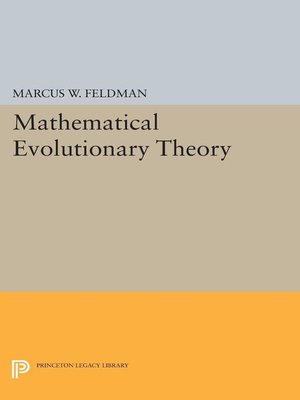
Sign up to save your library
With an OverDrive account, you can save your favorite libraries for at-a-glance information about availability. Find out more about OverDrive accounts.
Find this title in Libby, the library reading app by OverDrive.



Search for a digital library with this title
Title found at these libraries:
| Loading... |
An international group of distinguished scientists presents an up-to-date survey of quantitative problems at the forefront of modern evolutionary theory. Their articles illustrate results from the latest research in population and behavioral genetics, molecular evolution, and ecology. Each author gives careful attention to the exposition of the models, the logic of their analysis, and the legitimacy of qualitative biological inferences. The topics covered include stochastic models of finite populations and the sorts of diffusion approximations that are valid for their study, models of migration, kin selection, geneculture coevolution, sexual selection, life-history evolution, the statistics of linkage disequilibrium, and the molecular evolution of repeated DNA sequences and the HLA system in humans.
The fourteen contributions are presented in two sections: Part I, Stochastic and Deterministic Genetic Theory, and Part II, Behavior, Ecology, and Evolutionary Genetics. Marcus W. Feldman provides an introduction to each part. The contributors are J. G. Bodmer, W. F. Bodmer, L. L. Cavalli Sforza, F. B. Christiansen, C. Cockerham, W. J. Ewens, M. W. Feldman, J. H. Gillespie, R. R. Hudson, N. L. Kaplan, S. Lessard, U. Liberman, M.E.N. Majerus, P. O'Donald, J. Roughgarden, S. Tavar, M. K. Uyenoyama, G. A. Watterson, and B. Weir.
Originally published in 1989.
The Princeton Legacy Library uses the latest print-on-demand technology to again make available previously out-of-print books from the distinguished backlist of Princeton University Press. These editions preserve the original texts of these important books while presenting them in durable paperback and hardcover editions. The goal of the Princeton Legacy Library is to vastly increase access to the rich scholarly heritage found in the thousands of books published by Princeton University Press since its founding in 1905.






